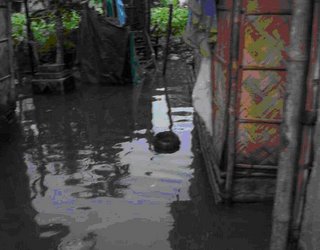 I had learnt from my friend Carolyn Stephens, of the London School of Hygiene & Tropical Medicine, that it is by looking at the disaggregated health statistics of cities that one begins to understand the nature of inequalities and inequities characterising the city, and their impact on the poor.
I had learnt from my friend Carolyn Stephens, of the London School of Hygiene & Tropical Medicine, that it is by looking at the disaggregated health statistics of cities that one begins to understand the nature of inequalities and inequities characterising the city, and their impact on the poor.
The principal environmental problem of Calcutta arises from the lack of access of the poor and vulnerable sections to adequate supplies of safe drinking water, which is, in turn, compounded by highly inadequate sanitation.
I was privy to a recent study of about 1,600 slum households spread across nine municipal areas of metropolitan Calcutta. It was found that:
- about 95 percent of the households depend on public standpipes or public handpumps for drinking water. Concerns relating to quality of drinking water and maintenance of existing infrastructure were also reported.
- about a sixth of the population defecates in the open. This proportion is higher in migrant and peri-urban slum settlements on account of poor sanitation infrastructure and availability of open spaces. However, the most common arrangement is shared latrines - reported by about half of the households. These are typically shared between 3-6 households. Only around 23 percent of the households had individual toilets.
- solid waste disposal and collection arrangements were inadequate in most of the study settlements. No arrangements for solid waste disposal and collection were reported in seven of the nine study locations.
- drainage conditions were poor in most study locations and wastewater often flows into the streets. In areas where drains have been made, most are in poor repair and / or overflowing owing to disposal of solid waste into them and infrequent clearance. The drainage concerns are more serious in low-lying settlements where they may lead to flooding inside houses during the rainy season, restricting mobility in most cases (and resultant loss of work) and necessitating relocation in extreme cases.
The Statesman yesterday carried an editorial from 100 years ago on the subject of sanitation. It could just as well have been written today. Sadly, today no editorials are written about water and sanitation for the urban poor.


1 comment:
Really amazing! Useful information. All the best.
»
Post a Comment